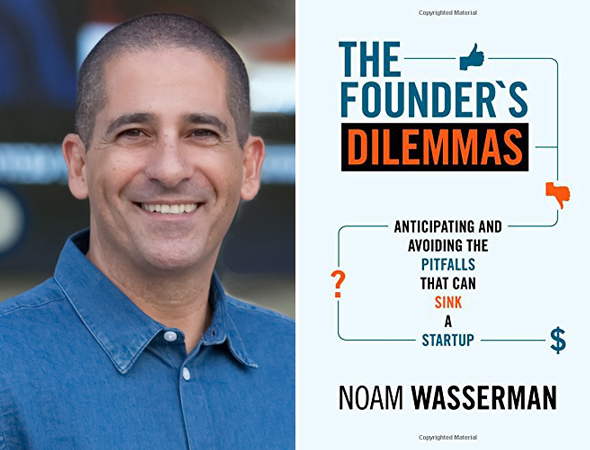BiblioTech
CTech’s Book Review: One of the 10 Must-Reads for Startup Founders
Yossi Maaravi, vice dean of the Adelson School of Entrepreneurship at IDC, on Noam Wasserman's "The Founder's Dilemmas"
Title: The Founder's Dilemmas: Anticipating and Avoiding the Pitfalls That Can Sink a Startup
Author: Noam Wasserman
Format: Hardcover
 Left: IDC Vice Dean Yossi Maaravi. Photo: Oren Shalev. Right: The Founder's Dilemmas
Left: IDC Vice Dean Yossi Maaravi. Photo: Oren Shalev. Right: The Founder's Dilemmas
One-liner: this seminal book is based on more than a decade of thorough research of almost 10,000 founders and answers most dilemmas startup founders may face.
Summary: Noam Wasserman wrote a book that is probably one of the 10 must-reads for startup founders, one that should probably be read before founding a company. Wasserman bases his advice and analysis on deep research of almost 10,000 founders and proves that academic research can help practitioners better understand both their environments and themselves. The book starts with stage “zero,” even before one decides to start a business, and goes through all major decisions involved in the growth of a company up to a successful exit (IPO/M&A). Founders will find answers to most dilemmas they face, such as: is it better to go solo or partner with co-founders? Should they start a business with a friend or a relative? How to hire employees, and who? How to communicate and deal with investors? And many more.
Bottom line: if you even consider founding a startup, this is a must-read. Just don’t forget to mention Noam Wasserman in your exit speech.
What I’ve learned: Many ask, can entrepreneurship be taught, or is it an innate ability and some people are born with the mindset and skills? Today, after four decades of extensive research in the fields of entrepreneurship, most scholars, educators, and officials agree that at least some aspects of entrepreneurship can be taught. This book is a strong example of how research-based learning can help entrepreneurs improve and avoid many mistakes.
Critique: an updated edition is needed given that the book was published in 2012, and in light of the rapid changes in the global startup ecosystems. Also, a cross-cultural analysis is needed.
Who should read this book: any and all startup founders, at any stage.



